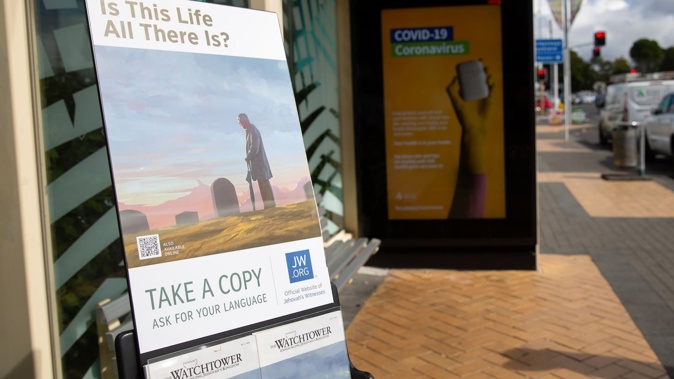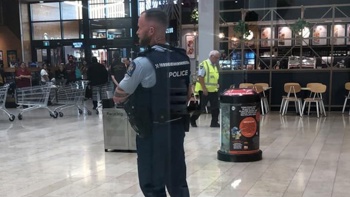

The Jehovah’s Witnesses have again failed in a long-running legal bid to avoid the scrutiny of a Royal Commission inquiry into abuse in care.
The Abuse in Care Royal Commission of Inquiry has been running for more than five years, investigating what happened to people in state and faith-based care in the second half of the 20th century.
It had been due to make its final report this month, but was granted an extension, partly to accommodate the Jehovah’s Witnesses’ legal bid to be excluded from its scrutiny.
The church has long argued that it has never assumed responsibility for the care of children, young people or vulnerable adults, and its activities fell outside the commission’s terms of reference.
This was because the church did not have any residential facilities, nor did it operate in any other way that involved the systematic care of such people.
It also said there was no institutional structure, system, practice or policy by which individuals were taken into care.
Opponents, however, have argued the church did at times place children in the unsupervised care of adults – not least for the practice of “witnessing”, where church members went door–to-door to explain their faith.
Cabinet extended the commission’s terms of reference, “for the avoidance of doubt” to make it clear a faith-based institution could assume a responsibility for a person through an informal or pastoral “trust-based” care relationship.
After the terms of reference were extended, the church sought a judicial review in the High Court, again seeking to be made exempt from the inquiry.
That bid was rejected by the High Court last October, but the church then went to the Court of Appeal, continuing to allege the commission was exceeding its terms of reference by inquiring into the Jehovah’s Witnesses’ activities.
It also argued the extension of the commission’s terms was targeted at the Jehovah’s Witnesses and inconsistent with the Bill of Rights.
The Court of Appeal Justices, in a decision released on Wednesday, said they did not agree with the High Court’s view that it was for a commission to “authoritatively determine” the scope of its own jurisdiction.
Nor did they agree that the courts should defer to the views of the commission on that question.
“A commission, like all administrative bodies and tribunals, only exercises the authority lawfully bestowed on it, and the proper interpretation of the empowering instrument involves a question of law which it is the court’s duty to determine,” they said.
However, they added that the limits of the commission’s role involved “concepts that have elastic rather than prescriptive meanings”, which were highly dependent on the facts and circumstances before it.
The Appeal Court justices also said they did not agree that the Jehovah’s Witnesses had been targeted.
“Rather, it is the Jehovah’s Witnesses who have sought to single themselves out as a group who should be excluded from scrutiny by the inquiry, and they have done so notwithstanding the evidence of abuse committed by members of the church,” the judgment said.
“In the end all that has happened is that the Crown has acted to remove the uncertainty as a consequence of the point raised by the Jehovah’s Witnesses.”
The Appeal Court rejected the Jehovah’s Witnesses’ arguments concerning the Bill of Rights.
It dismissed the appeal.
The commission is now due to make its final report to the Governor-General by June 26.
An RNZ investigation last year found 11 active Jehovah’s Witnesses had child sex abuse convictions or serious allegations made against them.
This story was originally published on the Herald, here
Take your Radio, Podcasts and Music with you









